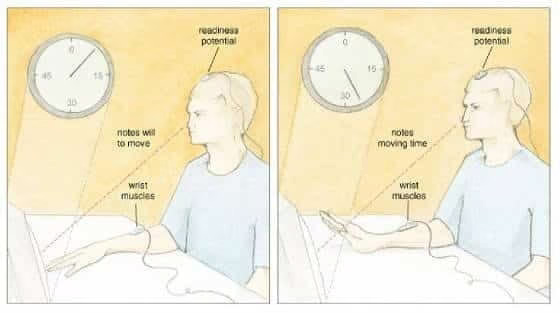Free Will: The Necessary Delusion

One of the more interesting sub-debates associated with Atheism vs. Religion is that of free will >. Quite simply, many Atheists don’t believe in it at all, while the majority of traditional believers feel that God gave them the ability to shape their own lives by clearly making decisions for themselves.
I personally don’t believe in it. My reason for this stance is actually very simple: I believe in nature. I believe that the world unfolds according to the dynamics of a nearly infinite number of variables interacting with each other. Just because there are trillions and trillions of them doesn’t make their interactions magical (or even special).
These variables include our genetics, our experiences, what chemicals are in our bodies at a given time, our immediate environment, etc. But ultimately, every action that a human takes when they’re "deciding" what to do is simply the output from one particular variable-set interaction.
Our brains are nothing but a collection of chemicals sloshing back and forth. These chemicals interact with each other in a finite, knowable way. The only reason we aren’t able to predict human behavior today is because we don’t have a solid grasp of the actors involved.
This is really no different from our inability to predict the weather 100 years ago. And how did we come to be able to do so? We simply became more capable of gathering information about the variables.
By this point you either already agree with me or you don’t. If you don’t then I doubt I’m going to muster up the firepower while casually writing this post to convince you. So for the purposes of the rest of this piece I’ll assume that you do agree with my main premise.
The Implications
What I find far more interesting than the fact that we don’t have free will are the implications thereof. Think of what it means for society — for human civilization as a whole. It turns out that just about everything in our society is based solidly in the notion that we do make decisions for ourselves.
What about our moral and legal systems? How do you punish someone for actions they took when no choices were really made? And what does this say about class and privilege? Doesn’t it sort of naturally lead to the doctrines of eugenics and elitism? I think it clearly does.
And what does this say about the uniqueness of humans? We’ve all heard about our ability to be logical and reason our way out of problems. Is this all an illusion? Given our lack of free will, what is actually taking place when one sits down to ponder a philosophical question or write brilliant prose?
Are we simply rocking back and forth in our little train car, trying to move a bit farther ahead on a biological track that we can never leave? It’s as if what we see as "discovery" and "growth" are in reality no different than a growing snowflake. It’s beautiful to watch, and it definitely follows a form worth giving a name to, but ultimately the snowflake is doing precisely the only thing that it can do, given the conditions.
The Solution
In terms of human society, the answer is actually stunningly simple: we simply forget that we even had this discussion. Free will is, for all intents and purposes, a necessary delusion.
To discuss the fact that it isn’t real truly serves no practical purpose other than that of an intellectual exercise. Our civilization simply could not advance in any positive way if this way of thinking were used to create policy.
Normally I abhor the idea of rejecting truth in order to make life temporarily more pleasant, but in this case I make an exception.: